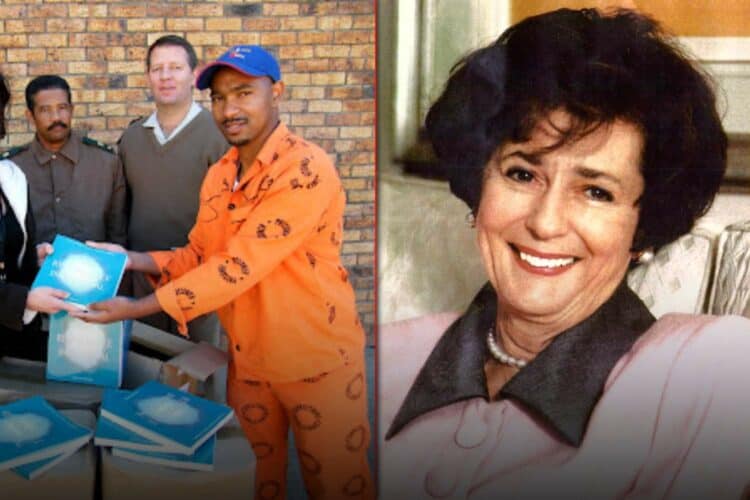The Department of Correctional Services (DCS) has officially announced that Luyanda Mboniswa is set to be released on parole by the end of August 2023.
Luyanda Mboniswa due for parole after serving 21 years for killing Marike de Klerk
Mboniswa’s impending release brings to the forefront the memory of the tragic incident that led to his incarceration: the killing of former South African president FW de Klerk‘s first wife, Marike.
A Haunting Crime
Back in May 2003, Mboniswa was handed a life sentence for his involvement in the brutal murder of Marike de Klerk.
At the time of his conviction, Mboniswa was merely 21 years old. The charges brought against him encompassed murder, robbery with aggravating circumstances, and housebreaking.
The incident that marked the turning point in both Marike de Klerk’s life and Luyanda Mboniswa’s fate unfolded as a horrific act of violence.
Mboniswa, who had been employed as a security guard at the Dolphin Beach premises in Table View, broke into Marike de Klerk’s beachfront apartment.
The outcome was a fatal stabbing that claimed the life of the former first lady, who was 64 years old at the time.
Parole Decision and Conditions
Luyanda Mboniswa’s upcoming release on parole follows careful consideration of various factors by the DCS.
According to Singabakho Nxumalo, a spokesperson for the department, Mboniswa was deemed eligible for parole placement after having served the required minimum time of his sentence.
The decision to grant parole was made in accordance with the Correctional Services Act of 1998.
As Mboniswa prepares to step back into society, he will be subject to specific parole conditions aimed at ensuring his reintegration is successful and safe.
These conditions encompass supervision by a designated monitoring official, adherence to standard parole regulations such as remaining within his magisterial district and refraining from contact with the victim’s family.
Additionally, any changes to his residential address must be communicated to the monitoring official.
The decision to grant Mboniswa parole is part of the broader framework of rehabilitation within the correctional system.
Parole, in this context, is not merely a release from prison but rather a carefully structured reintegration process that contributes to correcting criminal behaviour.
“To be emphasised, parole placement forms part of the total rehabilitation programme in correcting the offending behaviour and may include continuation of programmes in the system of community corrections,” Nxumalo added.






